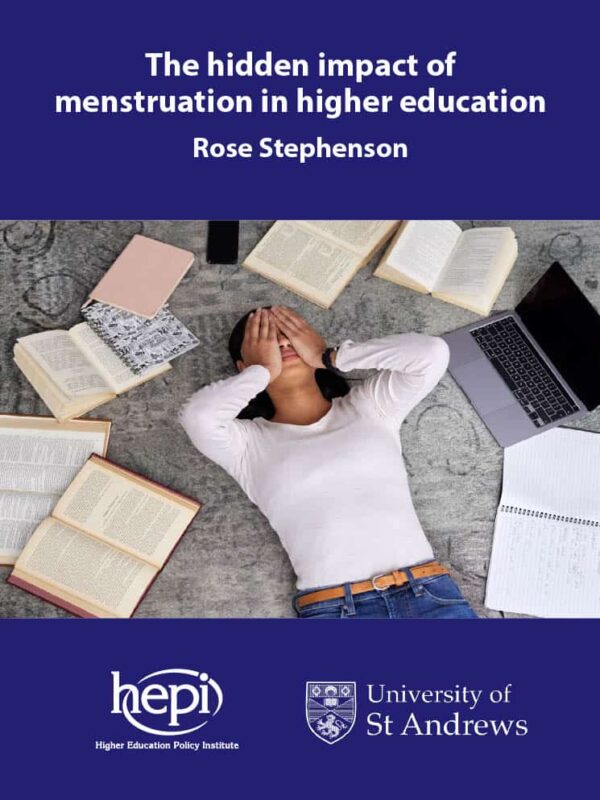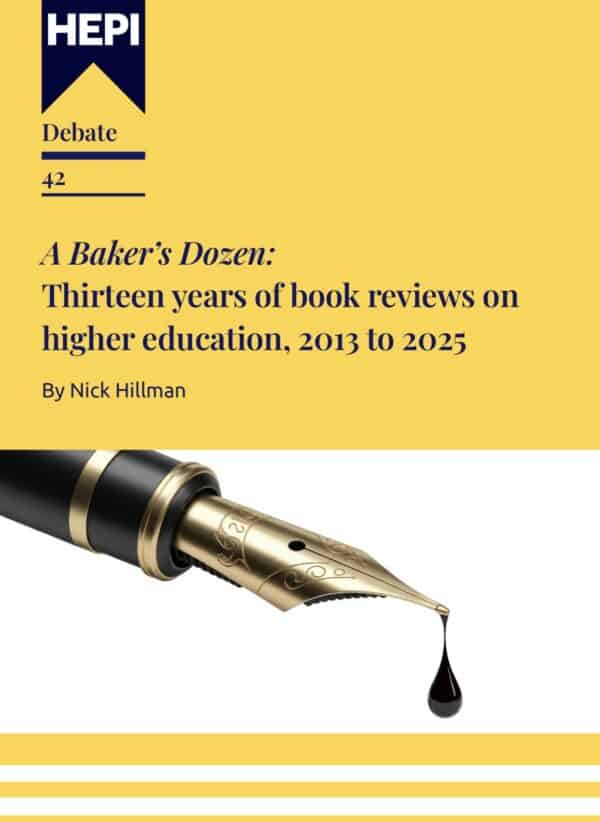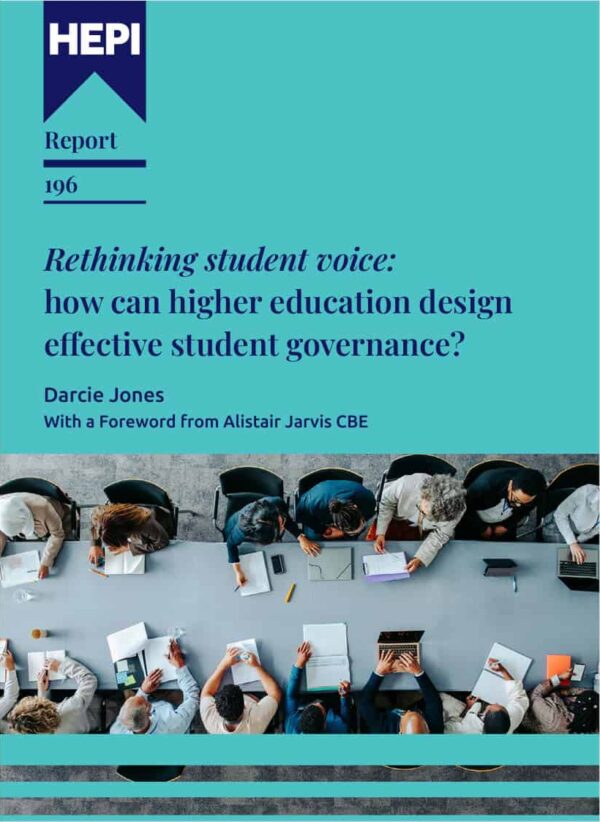The hidden impact of menstruation in higher education
A new report from the Higher Education Policy Institute (HEPI) highlights the significant yet underacknowledged impact of menstruation on students’ attendance, academic engagement and wellbeing in UK universities. Authored by Rose Stephenson, HEPI’s Director of Policy and Advocacy, The Hidden Impact of Menstrual Cycles on Higher Education Studies is based on responses from over 1,500 students and interviews. The research shows that menstrual cycles affect attendance, assessments and placement opportunities for a large portion of the student body – yet most institutions lack formal policies to address these issues.
Key findings
- Only one-third of female students (33%) describe the education they received at school and college about menstrual cycles and periods as ‘good’ or ‘very good’.
- Students who menstruate miss an average of 10 study days per academic year due to menstrual symptoms. For those with diagnosed menstrual health conditions, this increases to 19 days per year – equivalent to over 11 weeks of missed classes across a three-year degree.
- 70% of students who menstruate report being unable to concentrate on studies or assessments due to period pain, while 45% are affected by heavy menstrual bleeding. Conversely, 15% of respondents explained that there are days or weeks of their menstrual cycle when they experience a mental or physical ‘boost’ that increases their ability to focus or perform.
- One in six students who menstruate have experienced period poverty in the past year; nearly half of these missed classes as a result.
- Only 15% of universities offer any form of menstruation-related policy, and none of the surveyed institutions has policies that apply to students.
The report also highlights the gendered nature of discussions about menstruation. This includes different experiences of menstrual education, exposure to and participation in conversations around menstruation and the perception of taboo in relation to periods and menstruation.
Women have worked hard over decades, if not centuries, to overcome the idea that they cannot cope or should be considered ‘hysterical’ due to the fact that they menstruate. The findings of this report suggest that the fear of perpetuating this misogynistic historical narrative may have reinforced the taboo around the impact of menstruation.
One student explained:
I would say I have a headache rather than being on my period. I feel like people would look at me and think ‘why are you a cry-baby’ rather than just getting on with it.
Another student outlined:
At my university, all the exams are in a week at the end. I got my period in the middle of the exam. We were told that 50% would not pass. I was so scared that I wouldn’t pass. So, I sat through the entire exam and then rushed to the toilet. I sat through the whole exam in pain. I didn’t think I did as well because I was so focused on the pain. If you went to the toilet, they would follow you to where the toilets were and then follow you back in. You weren’t allowed to go to your bag – they were at the back, and you weren’t allowed to touch them. So you couldn’t take any medication.
One higher education provider is taking a proactive and forward-thinking approach to support their students and mitigate the impact of menstruation on their studies. The University of East London (UEL) has launched a pioneering new initiative called The Shine Project, the world’s first university-wide screening programme focused on iron deficiency, anaemia and heavy menstrual bleeding.
Recommendations
- School and college curricula should be reviewed to ensure the delivery of comprehensive menstruation education, reflective of real-life experiences, to all pupils regardless of gender.
- Higher education providers should ensure that period products are freely available in multiple venues across campus.
- The Westminster Government (for England) and the Welsh Government should follow the lead of the Scottish Government and Northern Irish Executive by enshrining the right to access free period products for those who need them.
- The Office of the Independent Adjudicator for Higher Education (OIAHE) and higher education institutions should review the language used in policies and guidance relating to extension requests and extenuating circumstances to ensure that women’s health conditions are explicitly included. The language should be broad enough to take into account students who suffer from severe symptoms during their menstrual cycle but who do not have a medical diagnosis.
- The Department for Health should fund a taboo-busting media campaign, ‘It’s okay to talk about periods’.
Rose Stephenson, Director of Policy at the Higher Education Policy Institute and author of the report, said:
The findings from this report demonstrate the hidden impact of periods and menstrual cycles on students’ higher education studies. This is a particularly serious issue for those who have been diagnosed with menstruation-related illnesses who miss, on average, 11 weeks of academic study over a three-year degree course. Menstrual health is not a niche concern. It is a structural issue that deserves thoughtful institutional and governmental responses.
Professor Dame Sally Mapstone, Principal and Vice-Chancellor of the University of St Andrews, said:
The findings in this report are clear: for many students, menstruation and the menstrual cycle affect not just comfort but capacity. While menstruation can be profoundly debilitating for some students, it should not be characterised exclusively as an affliction, nor assumed to fall within the category of illness or disability. It should instead be understood in the round: a normal, cyclical element of life, with the potential both to challenge and to inform.
Historically, menstruation has too often been framed as a source of embarrassment, invisibility, or disadvantage. That should no longer be the case. This report sets out a challenge to reflect on how systems, policies and assumptions may obscure the realities of those they serve and to shape a more intelligent, humane and responsive academic culture. That is a challenge well worth taking up.
Notes for editors
- HEPI was established in 2002 to influence the higher education debate with evidence. We are UK-wide, independent and non-partisan. We are funded by organisations and higher education institutions that wish to support vibrant policy discussions, as well as through our own events. HEPI is a company limited by guarantee and a registered charity.
- The report refers to ‘students who menstruate’ to reflect the data collected. A full explanation of this and the report methodology can be found on pages 12 and 23 of the report.








Comments
Add comment